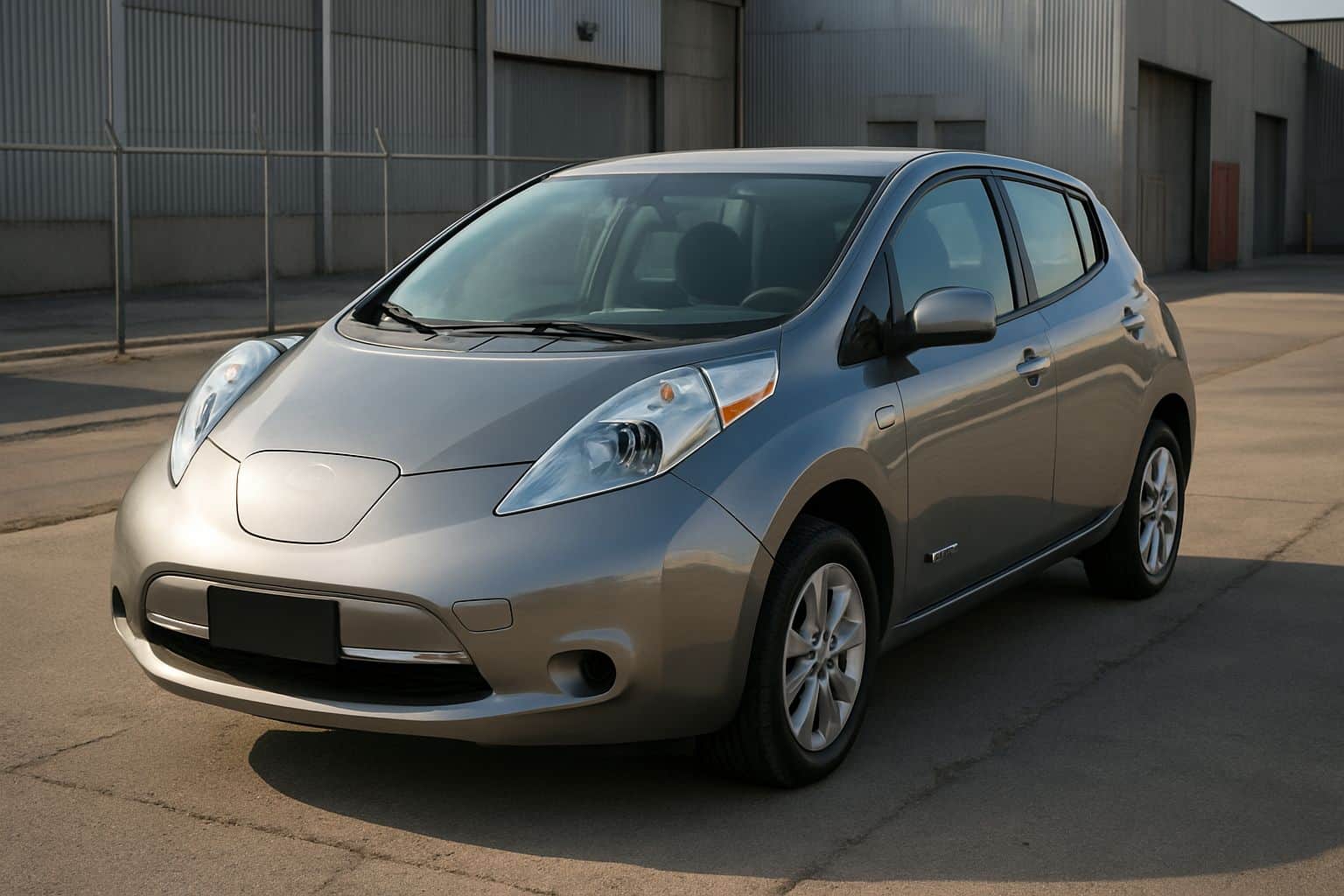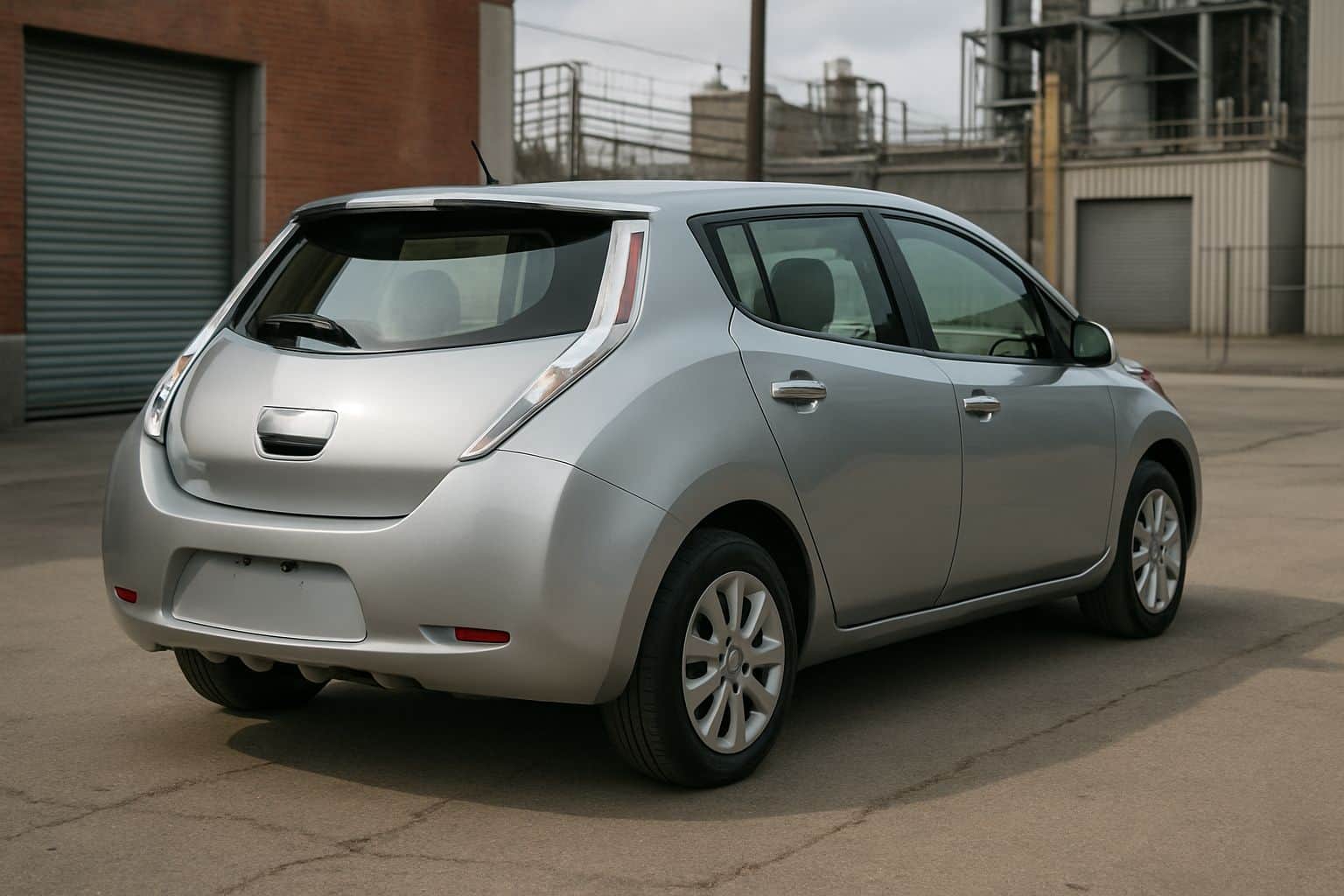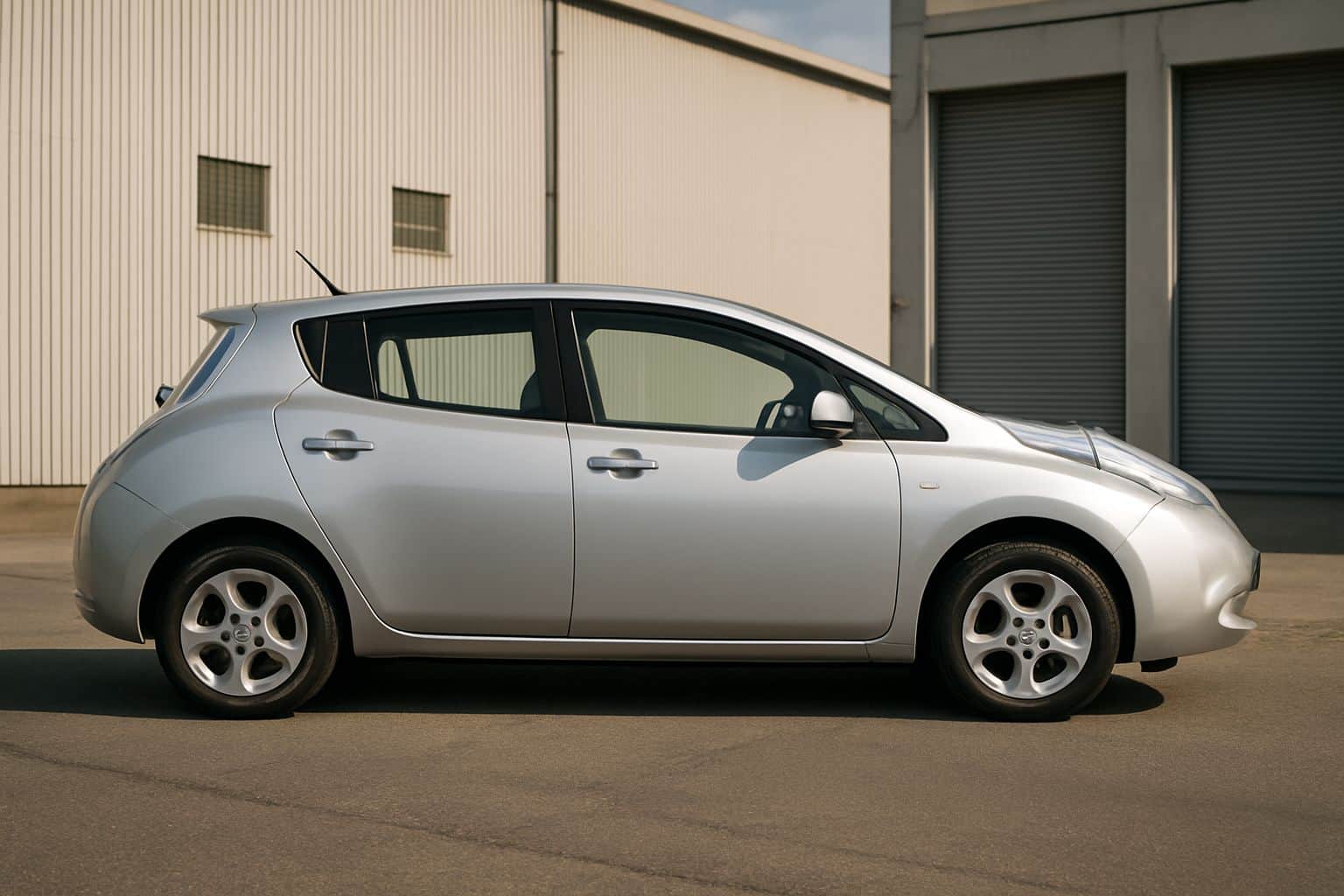


Nissan Leaf (2011 - 2018) Review
Expert review with performance specs, running costs, and finance options.
The Nissan Leaf (2011 - 2018) offers a smooth and quiet driving experience, characteristic of electric vehicles. Its instant torque provides a responsive acceleration, making it ideal for urban commuting. The regenerative braking system enhances efficiency, allowing drivers to maximise their range while contributing to a more sustainable driving experience. This retro icon reborn as an electric vehicle combines modern technology with a nod to its heritage, appealing to both eco-conscious drivers and those who appreciate its iconic design.
Handling in the Nissan Leaf is commendable, with a low centre of gravity due to its battery placement. This design feature contributes to stability during cornering and enhances overall manoeuvrability. The steering is light yet precise, making it easy to navigate through tight spaces and city traffic. The Leaf's compact dimensions further aid in its agility, making it a practical choice for urban environments while still retaining the charm of a retro icon.
Ride Comfort
Ride comfort in the Nissan Leaf is generally excellent, with a well-designed suspension system that absorbs bumps and imperfections in the road. The cabin is spacious and quiet, providing a serene environment for both driver and passengers. High-quality materials and thoughtful ergonomics enhance the overall comfort, making long journeys more enjoyable. As a retro icon reborn, the Leaf successfully merges comfort with modern electric vehicle technology, ensuring a pleasant driving experience.
Performance
Performance-wise, the Nissan Leaf delivers a balanced blend of efficiency and power. The electric motor provides a smooth and consistent power delivery, allowing for seamless acceleration. While it may not be the fastest electric vehicle on the market, its performance is more than adequate for daily driving needs. The Leaf's range, particularly in the later models, has improved significantly, making it a practical choice for those looking to transition to electric without sacrificing performance. This retro icon reborn showcases how electric vehicles can perform effectively in everyday scenarios.
| Trim | Production | Power | 0-60 | Top Speed | Energy/Fuel Economy |
|---|---|---|---|---|---|
| Visia (6.6kW Charger) 5d Auto | 2013 - 2017 | 107 bhp | 11.1 s | 89 mph | N/A |
| Acenta Flex (6.6kW Charger) 5d Auto | 2013 - 2017 | 107 bhp | 11.1 s | 89 mph | N/A |
| Visia 5d Auto | 2013 - 2017 | 107 bhp | 11.1 s | 89 mph | N/A |
| Visia Flex 5d Auto | 2013 - 2017 | 107 bhp | 11.1 s | 89 mph | N/A |
| Visia Flex (6.6kW Charger) 5d Auto | 2013 - 2017 | 107 bhp | 11.1 s | 89 mph | N/A |
| Visia Flex 5d Auto | 2013 - 2017 | 107 bhp | 11.1 s | 89 mph | N/A |
| Visia Flex (6.6kW Charger) 5d Auto | 2013 - 2017 | 107 bhp | 11.1 s | 89 mph | N/A |
| Visia 5d Auto | 2013 - 2017 | 107 bhp | 11.1 s | 89 mph | N/A |
| Visia (6.6kW Charger) 5d Auto | 2013 - 2017 | 107 bhp | 11.1 s | 89 mph | N/A |
| Acenta 5d Auto | 2013 - 2017 | 107 bhp | 11.1 s | 89 mph | N/A |
Overall Impression
Overall, the Nissan Leaf (2011 - 2018) stands out as a pioneering electric vehicle that has successfully redefined the concept of eco-friendly driving. Its combination of practicality, comfort, and retro charm makes it an appealing choice for a wide range of drivers. As a retro icon reborn, the Leaf not only pays homage to its roots but also embraces the future of sustainable transportation. With its impressive range, user-friendly technology, and stylish design, the Nissan Leaf remains a significant player in the electric vehicle market.